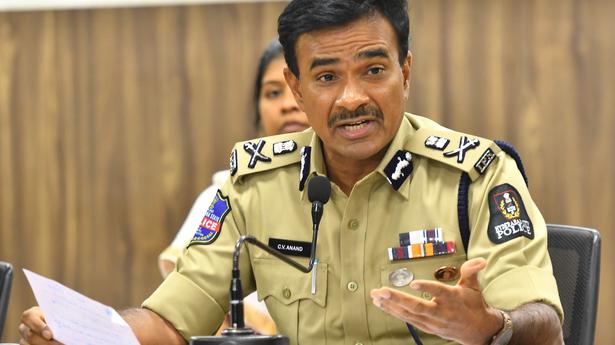
Police get custody of 5 minor boys in Hyderabad rape case
The Hindu
Juvenile Board’s permission sought to treat them as majors
The police have got custody of five minor boys involved in the gangrape of a 17-year-old girl at Jubilee Hills in Hyderabad on May 28 for the purpose of questioning for five days from Friday.
A Juvenile Justice Board, while giving the permission for custody, directed the police to question the minors in the Juvenile Home itself at Saidabad where they were lodged after arrest. The police will record their statements not in their uniforms but in plainclothes in the presence of lawyers.
In a series of petitions filed before the board since the police intensified investigation into the case, initially the custody of the boys was sought on Tuesday while the parents of the boys moved bail petitions on Wednesday. A petition on test identification parade of the culprits to let the victim identify them was filed on Thursday. Through another petition on Friday, the police will seek the permission of the board to conduct potency test on the five minors and another major boy Saduddin Malik to strengthen their case of rape in the charge sheet.
A senior police officer said the police will also appeal to the board to treat the minors as majors to facilitate strict enforcement of provisions of the IPC which were invoked against them. The idea was to leave no room to dilute the sections for reasons of minority of age. Also, the nature of crime was nothing short of crime committed by adults. Moreover, the minors would have turned majors when the case was pending trial. .
It was argued that an amendment to Juvenile Justice Act in 2015 had approved trying minors as majors during trial. A 17-year-old boy who was accused of committing unnatural sex on a 10-year-old boy at Chandrayangutta in the old city of Hyderabad was treated as a major in 2019.
Meanwhile, the police today took custody of Malik for four-day interrogation. The police seized the cell phones and clothes worn by the accused at the time of offence to build up scientific evidence about the crime at the scene of offence.

“Writing, in general, is a very solitary process,” says Yauvanika Chopra, Associate Director at The New India Foundation (NIF), which, earlier this year, announced the 12th edition of its NIF Book Fellowships for research and scholarship about Indian history after Independence. While authors, in general, are built for it, it can still get very lonely, says Chopra, pointing out that the fellowship’s community support is as valuable as the monetary benefits it offers. “There is a solid community of NIF fellows, trustees, language experts, jury members, all of whom are incredibly competent,” she says. “They really help make authors feel supported from manuscript to publication, so you never feel like you’re struggling through isolation.”

Several principals of government and private schools in Delhi on Tuesday said the Directorate of Education (DoE) circular from a day earlier, directing schools to conduct classes in ‘hybrid’ mode, had caused confusion regarding day-to-day operations as they did not know how many students would return to school from Wednesday and how would teachers instruct in two modes — online and in person — at once. The DoE circular on Monday had also stated that the option to “exercise online mode of education, wherever available, shall vest with the students and their guardians”. Several schoolteachers also expressed confusion regarding the DoE order. A government schoolteacher said he was unsure of how to cope with the resumption of physical classes, given that the order directing government offices to ensure that 50% of the employees work from home is still in place. On Monday, the Commission for Air Quality Management in the National Capital Region and Adjoining Areas (CAQM) had, on the orders of the Supreme Court, directed schools in Delhi-NCR to shift classes to the hybrid mode, following which the DoE had issued the circular. The court had urged the Centre’s pollution watchdog to consider restarting physical classes due to many students missing out on the mid-day meals and lacking the necessary means to attend classes online. The CAQM had, on November 20, asked schools in Delhi-NCR to shift to the online mode of teaching.









